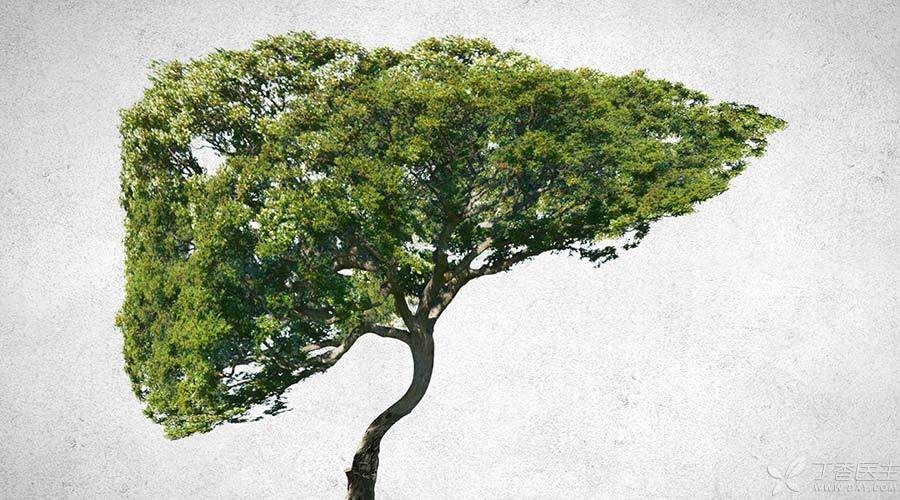
As the saying goes: darling. Liver is probably one of the most precious organs in the human body. It is indispensable to almost every normal physiological function.
However, even if Dr. Clove does not say so, you can cite a lot of examples of [liver injury], such as staying up late, drinking, hepatitis B…
But what really hurts the liver? How can really [protect liver] [protect liver]? Today, Dr. Clove will tell you about it.
Does staying up late hurt your liver?

Strictly speaking, there is currently no evidence that staying up late will directly [hurt the liver].
The word [staying up late], to put it more scientifically, should be [irregular sleep and lack of sleep]. Long-term exposure to this state is really harmful to human body.
As to whether [staying up late] has direct effect on liver, relevant research literature cannot be found for the time being.
However, long-term sleep problems will have adverse effects on the autonomic nervous system and endocrine system. If the whole body organs are not in good condition, the liver is of course the victim.
Therefore, it can only be reluctantly said that staying up late for a long time has [indirect] damage to the liver, and it is understandable that everyone wants to [protect the liver] by not staying up late.
Four Things That Really Hurt Liver

As the saying goes, diseases come from the mouth, and most of the liver injuries in daily life are also related to eating.
1. Drink too much, too much alcohol
Wine is definitely a good hand at hurting liver.
Alcohol (ethanol) is metabolized to acetaldehyde first in the liver, then to acetic acid, and acetic acid is finally metabolized to water and carbon dioxide.
In this metabolic chain, it is acetaldehyde that really hurts the liver. Acetaldehyde’s damage to the liver varies from light to heavy:
- In light cases, liver cells are damaged to cause liver enzymes (such as transaminase) to run from cells to blood, so many people will find liver enzymes (transaminase) to rise after drinking. In heavy cases, liver cells undergo irreversible damage and undergo a series of evolution into [liver cirrhosis], medically called [alcoholic liver cirrhosis], which may develop into liver cancer.
2. Eat too well and have too much fat.
The liver is the metabolic center of the three major nutrients of human body: sugar, protein and fat. After the food eaten in the stomach is digested by the gastrointestinal tract, all the blood passes through the portal vein system and enters the liver, which is then treated as nutrients for adult physical fitness.
The liver has a certain metabolic limit. If you have big fish and big meat every day and the liver cannot handle it, fat cannot be metabolized into sugar in time, but is overstocked in liver cells as stock, causing liver damage. This situation is [fatty liver].
Fatty liver can be treated and reversed to a certain extent, but if it is not paid attention to for a long time, it will cause fatty liver cirrhosis and even liver cancer.
3. Abuse of drugs and taking drugs indiscriminately,
The liver is also the largest detoxification organ. It participates in drug metabolism and can decompose toxic substances.
If you have noticed the “Adverse Reactions” column in the drug instructions, you will find that quite a number of drugs have written one sentence:
Long-term administration may cause elevated liver enzymes, please take the medicine under the guidance of a doctor.
Therefore, do not take any medicine indiscriminately (including the so-called [tonic]), and must take it under the guidance of a doctor and according to the usage instructions.
4. Eat [liver protection, liver protection] products and [anti-alcoholism drugs]
Drinking too much wine is not good for the liver, but if you eat the so-called [anti-alcoholism drugs] [liver-protecting drugs] [liver-protecting drugs] indiscriminately, it is also harmful to the liver.
The reason is:
- At present, there is no anti-alcohol medicine at all.
Alcohol is mainly metabolized in the liver. Theoretically, only by speeding up alcohol metabolism can we relieve alcoholism.
However, the rate of alcohol metabolism mainly depends on the activities of related enzymes, and there is no drug that can significantly increase the activities of these enzymes.
- Increasing the burden on the liver
Whether it is what [liver protection] products, eating them requires liver metabolism and increases the burden on the liver.
If the ingredients are known and the human body can cope with them, that is fine. If unclear and inappropriate ingredients are added, liver damage is likely to be caused.
[Liver Protection] There are 4 Key Points

So, what should I do to protect my liver?
In fact, just do the opposite of what I said earlier:
- Drink less: Less alcohol is good for the liver, and everyone on earth should know it. Balance: regular work and rest, balanced diet, sufficient but not excessive nutrition, and good weight control. Simply: give up the idea of [taking some what to nourish the liver] and do not add extra burden to the liver. Be careful with your medication: don’t take your medicine casually, take it under the guidance of your doctor.
Finally, Dr. Clove should remind everyone not to forget to take hepatitis B vaccine and do regular physical examination.
Prevention is always the most economical and effective [maintenance].
